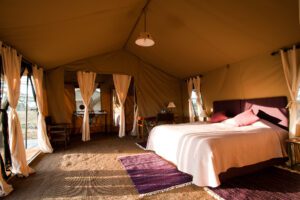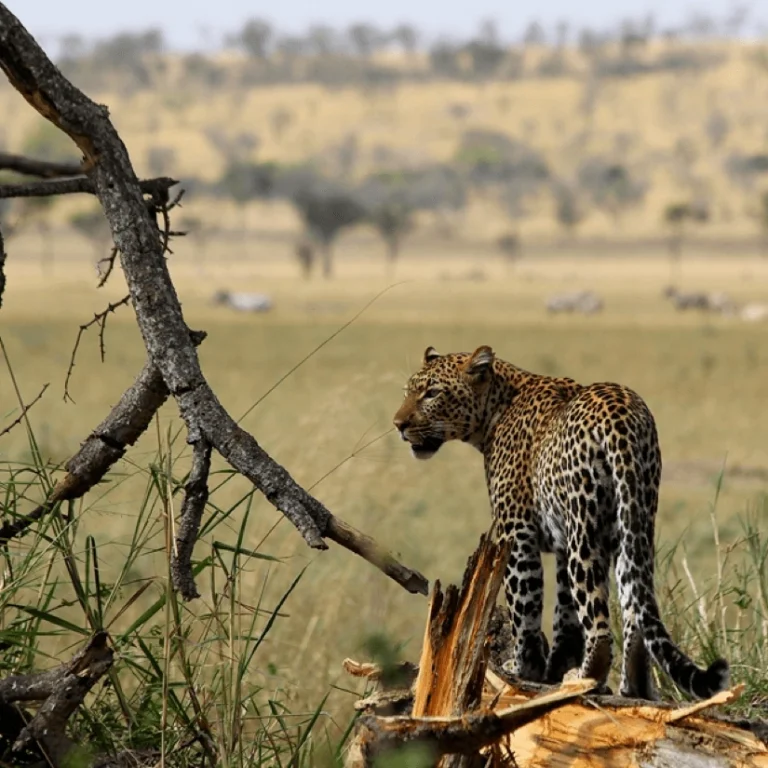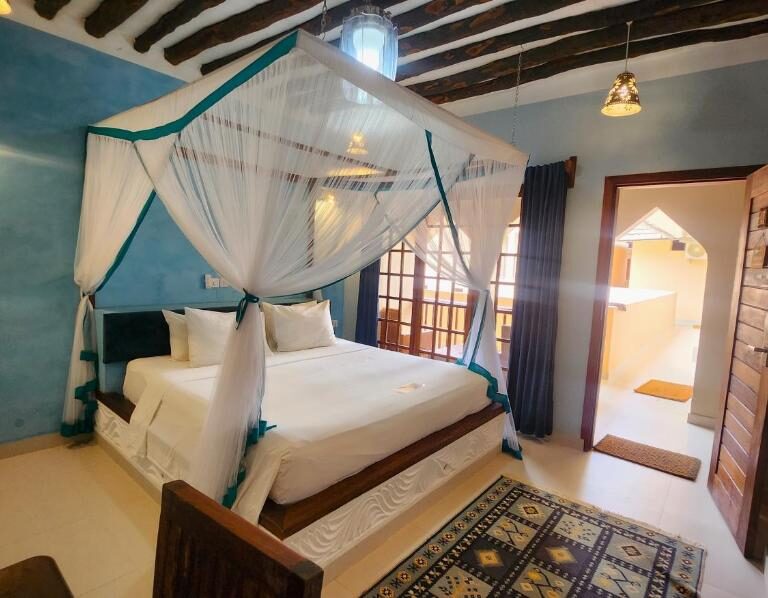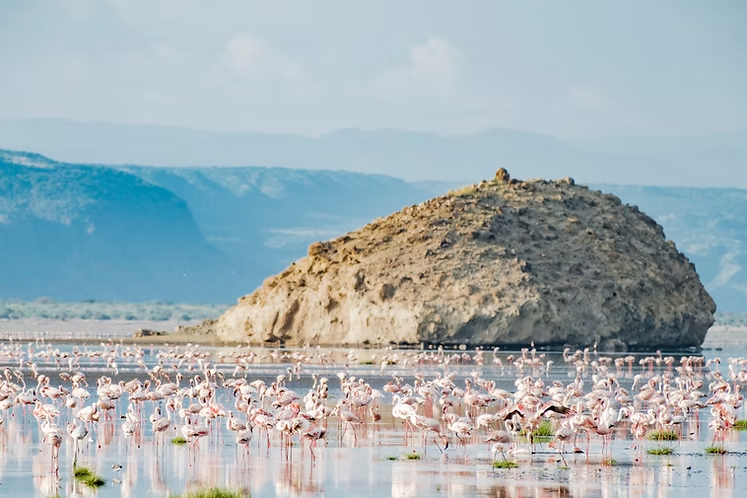Planning a family safari in Africa involves several key tips, including choosing the right destination and accommodation, preparing your family for the experience, and packing essentials like sun protection, insect repellent, and comfortable clothing in neutral colors. It’s also important to consider vaccinations and travel insurance, book in advance, and select a tour operator experienced with family safaris. A safari is a once-in-a-lifetime adventure for many families, considerations for families going on safari a chance to connect with nature, explore breathtaking landscapes, and experience some of the world’s most majestic animals in their natural habitat. However, a safari isn’t a typical vacation—it requires careful planning and consideration, especially when traveling with children. From understanding the terrain to ensuring safety, here are 10 important things families should consider before embarking on a safari journey.
1. Age of the Children
The age of your children plays a crucial role in the type of safari experience you choose how Young is too young for kids to go on an African Safari. While some lodges and tours cater specifically to families with younger children, others may have age restrictions due to safety concerns or the intensity of the experience. Many safari activities, such as game drives, can last several hours and involve bumpy rides, which might be difficult for younger kids. For infants or toddlers, consider lodges with child-friendly facilities, like babysitting services or family rooms. For older children (typically 6 and above), more interactive experiences like walking safaris or night drives might be enjoyable. Research and choose safari destinations that cater to your children’s age group for a smoother experience.
2. Health and Safety
Before traveling on safari, ensure that your family’s health is in good shape for the adventure. Considerations for families going on safari. Visit a travel clinic to discuss vaccinations, such as yellow fever, typhoid, or malaria, depending on your destination. Malaria-preventive medication is often recommended for many safari regions, particularly in parts of Africa. Also, check the health facilities available in the area, especially if you’re traveling to remote locations, and considerations for families going on safari. Some safari lodges and camps may have first-aid staff or emergency evacuation plans, but always prepare by packing a health kit that includes sunscreen, insect repellent, anti-nausea medication, and any prescription medications.
3. Choosing the Right Safari Destination
Choosing the right safari destination is paramount to creating a family-friendly experience. Considerations for families going on safari. Popular destinations such as Kenya’s Maasai Mara, Tanzania’s Serengeti, South Africa’s Kruger National Park, and Botswana’s Okavango Delta are known for their excellent game viewing, but they can be very different in terms of terrain, accommodation, and accessibility. Consider how accessible the destination is for your family. Some regions are more easily accessible via short flights, while others require long overland journeys that can be challenging with young kids. Also, some areas have specific attractions like cultural interactions with local tribes, whereas others might offer more secluded experiences, allowing families to enjoy the solitude and tranquillity of the bush.
4. Selecting Family-Friendly Accommodation
Safari accommodations vary greatly, from luxury lodges and tented camps to self-catering cabins. essential tips for taking an African Safari with Kids. When traveling with children, it’s important to choose accommodations that cater to families and their specific needs, considering families going on safari. Look for properties that offer family suites, child-friendly amenities (like swimming pools, play areas, or kids’ clubs), and activities that can keep children engaged when not on a game drive. Some safari lodges provide dedicated children’s programs, where kids can learn about conservation, wildlife tracking, and the local culture in a safe and interactive environment. A well-suited accommodation choice can make a big difference in ensuring everyone enjoys the safari experience.
5. Packing for the Safari
Packing for a safari requires a balance between practicality and comfort considerations for families going on safari. When traveling with kids, you need to plan to ensure that everyone’s needs are met. Some key items to pack include lightweight clothing in neutral colors (to blend in with the environment), comfortable shoes for walking safaris, and hats for sun protection. Don’t forget the essentials for children, like snacks, favorite toys, books, and a portable charger to keep devices running during long drives. If your kids are sensitive to heat or bugs, bring along protective clothing, insect repellent, and sunscreen. A good camera with extra batteries is essential to capture the memorable moments, but also be sure to pack a pair of binoculars for the children to spot wildlife from a distance.
6. Understanding the Safari Schedule
Safari days can be long and start early in the morning, typically with a pre-dawn game drive to catch the animals at their most active. For families with young children, this early start may not always be feasible. It’s important to understand the schedule of your chosen safari and determine if it aligns with your family’s pace. Some safari operators offer flexible itineraries that allow for midday breaks or customized schedules that can better suit your children’s energy levels. Similarly, while some safaris are action-packed, involving multiple activities in a day, others may be slower-paced with fewer activities, which might be more suited to younger or less adventurous children.
7. Wildlife and Safety Protocols
A safari is all about the animals, but it’s important to remember that these creatures are wild, and safety is paramount. Educate your children beforehand about the dos and don’ts during a safari, such as remaining in the vehicle during game drives, not making sudden noises, and following the guide’s instructions at all times. Ensure the safari operator you choose employs experienced, well-trained guides who have a deep understanding of animal behavior and safety protocols. Some lodges also have wildlife experts who can give presentations, helping to further educate kids on the importance of respecting animals and preserving natural habitats.
8. Balancing Adventure and Relaxation
While a safari can be an exhilarating adventure, balancing it with periods of rest is vital, especially when traveling with children. Consider adding some downtime to your itinerary to allow everyone to recharge in serengeti with kids. Many safari camps offer spacious common areas where families can relax between game drives, or even private plunge pools where kids can cool off. If you’re staying in a lodge for an extended period, be sure to incorporate activities outside of game drives. Swimming, birdwatching, or exploring the surrounding environment can provide a more relaxed pace Tanzania safari with kids. Additionally, some family-friendly lodges entertain kids, such as crafts, games, and cultural experiences, which can be a great way to balance adventure with relaxation.
9. Conservation and Ethical Considerations
Safari experiences often revolve around observing and respecting wildlife considerations for families going on safari. Before embarking on a safari, educate your family about the importance of conservation and sustainable tourism family safety concerns while traveling to safari. Many safari operators partner with local communities and conservation programs to protect endangered species and preserve ecosystems going on safari with children. By supporting these businesses, you contribute to their efforts to keep wildlife safe.
Involve your children in learning about the environmental and ethical aspects of your trip, such as respecting local cultures, avoiding plastic waste, and supporting ethical animal tourism African safari with family. Some safaris include educational programs or volunteer opportunities that allow families to participate in hands-on conservation efforts, such as tree planting or assisting with animal tracking.
10. Creating Lasting Memories
Finally, remember that a safari is about creating lasting memories as a family. Take time to enjoy the beauty of the surroundings and the magic of seeing animals in their natural environment, family safaris in Africa, and everything you need to know. Consider taking family photographs to capture the special moments, and encourage your kids to document their experiences through journaling or drawing. Consider celebrating a milestone, such as a birthday or anniversary, during your safari. Many safari lodges can arrange special celebrations like surprise dinners in the bush or private sunset safaris for family groups. These moments will provide a unique touch to your trip and create treasured memories for years to come.
11. Discounts for Children
When planning a safari, one of the first things to check is whether your children qualify for any discounts. African safari with kids: what to know and how to plan. Many safari lodges and tour operators offer special rates for children, particularly those under a certain age, such as 12 or younger. These discounts can make a significant difference in the overall cost of your trip. However, the age limits for discounted rates can vary, so it’s important to confirm with the lodge or operator in advance. Ten tips for taking young kids on safari.
Additionally, some lodges offer free stays for very young children, often under 2 years old, especially if they share a bed with parents. Others may charge a reduced fee for children between 2 and 12 years old, and in some cases, children between 12 and 18 might receive a discount if they are sharing a room with an adult. Be sure to inquire about child-friendly packages that may include meals, activities, or even special kids’ programs, which could further reduce your family’s costs.
12. Meals & Meal Times
Mealtime is an important aspect of any vacation, and on safari, it’s no different best safari tips for family safaris with kids. Many safari lodges offer family-friendly meals, but meal times and offerings can differ greatly depending on where you stay. Some lodges have specific children’s menus that feature familiar favorites like pasta, pizza, or chicken fingers, while others may offer the same gourmet meals as for the adults, but with options for smaller portions or less spicy dishes.
Keep in mind that safaris often involve early mornings with game drives that begin at dawn, which can affect meal times. For example, a typical safari day might start with a game drive at 6:00 AM, followed by breakfast at 9:00 AM, and then a long break for lunch, possibly followed by an afternoon game drive before dinner. This means your children might have to adjust to meal times that are earlier or later than usual, and you’ll need to plan accordingly.
When booking your safari, ask whether the lodge offers flexibility with meal times, especially if your children are younger or have special dietary requirements. Additionally, if your kids have any food allergies or dislikes, make sure to communicate these needs well in advance is what to know about taking a safari with kids.
13. Private Vehicle
For families, especially those with younger children or those traveling with a group, booking a private safari vehicle is often a wise choice. While shared vehicles are the norm in many safari parks, private vehicles offer flexibility, comfort, and privacy. This means you can tailor your safari experience to your family’s schedule, stop when you need to, and avoid potentially long, uncomfortable drives with strangers. Private vehicles also allow for a more customized experience. If your children are fascinated by a particular animal, such as lions or elephants, you can spend more time observing it. Plus, a private guide can adjust the pace and type of safari activities based on your children’s needs and interests.
While booking a private vehicle does come with an additional cost, many families find it worth the investment for a more enjoyable and relaxed safari experience. It’s also a great way to ensure that your family gets the most out of the trip without being rushed or inconvenienced.
14. Age Restrictions on Activities
Different safari lodges and tour operators may have age restrictions for certain activities due to safety concerns. For example, children under a certain age (usually around 6 or 12) may not be allowed to participate in walking safaris, which can involve potentially dangerous encounters with wildlife good reasons to go on a family safari. Similarly, activities like night drives or game walks may not be suitable for very young children due to the risks involved.
It’s important to check with your safari operator beforehand to understand any age restrictions on activities. Many lodges offer a variety of kid-friendly options, including game drives tailored to younger children. Nature walks, or even guided activities where kids can learn about wildlife tracking, plant identification, or conservation.
Some lodges even offer specialized “kids’ safaris,” where children are introduced to the basics of safari guiding, such as tracking animal footprints or bird watching safari with toddler. These are not only fun but educational, allowing your children to feel involved in the adventure.
15. Find a Great Kids’ Guide
One of the best ways to keep children engaged and excited about their safari experience is to hire a dedicated children’s guide. Some safari lodges provide special guides who are trained to work with kids and ensure that the experience is both educational and entertaining. These guides often tailor activities to children’s interests and ages, making sure they have hands-on experiences with nature that are both fun and informative.
A kids’ guide can take children on nature walks, teach them about the local wildlife tips to plan a family African Safari. And help them understand the environment in a way that is accessible and captivating. Many children’s guides also have a strong background in conservation and can explain the importance of protecting wildlife and ecosystems, which can be a great opportunity for family learning.
In some areas, you may also find that the safari lodge offers a Junior Ranger program. Where kids are encouraged to get involved in conservation efforts. Such as learning how to track animals or create wildlife art. This can be a fantastic way for children to not only learn about nature but also to feel empowered to make a difference in the world.
A Guide to Tanzania Safari with Kids
A Tanzania safari with kids is a thrilling family adventure, blending wildlife encounters, cultural experiences, and fun activities tailored for young travelers. Explore iconic destinations like Serengeti, Ngorongoro Crater, and Tarangire, while enjoying family-friendly lodges, shorter game drives, and exciting activities like bush walks, balloon safaris, and cultural visits. With proper planning, child-friendly itineraries, and safety measures, this unforgettable journey offers an educational and bonding experience, ensuring memories that will last a lifetime. Perfect for families seeking adventure and discovery!
Conclusion: considerations for families going on safari
Going on safari with your family can be an incredibly rewarding experience, full of adventure, learning, and unforgettable moments. By considering these 10 factors—such as age suitability, health precautions, safety protocols, and the right destination—you can ensure that your family enjoys a safe, comfortable, and meaningful safari experience. With a little planning, you’ll be able to immerse yourself and your children in the wonders of the African wilderness, and return home with memories that will last a lifetime.








